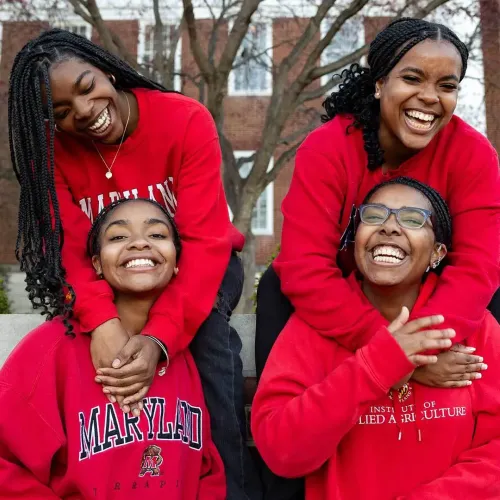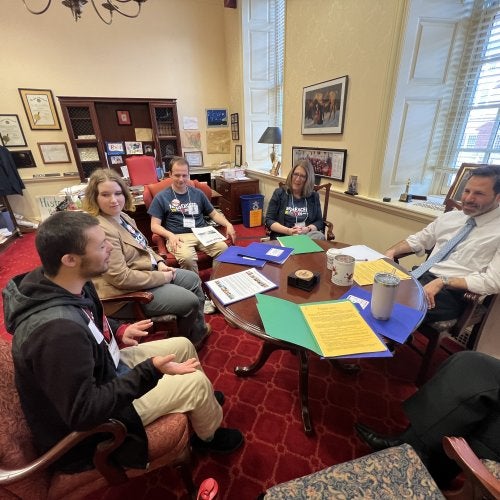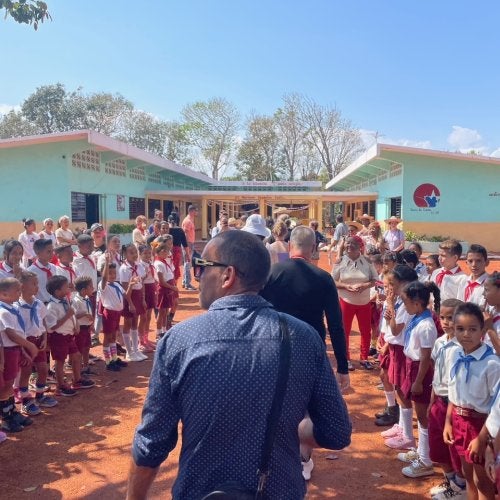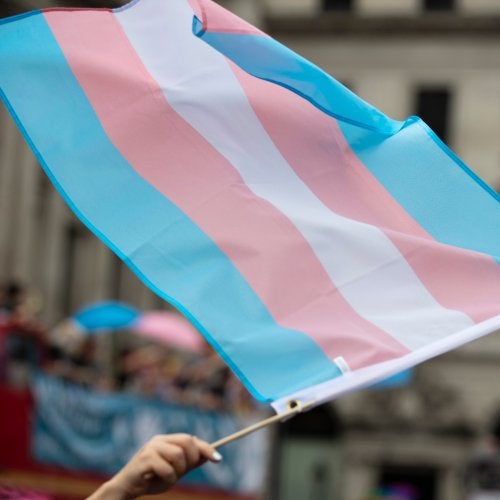December and May are both very exciting months at the University of Maryland: the whole University reflects on the incredible accomplishments of its students, as they become alumni and begin their careers or take their current careers to new heights. We at the College of Education are proud of our graduates, and we would like to celebrate this momentous occasion by highlighting the work of our newest graduating class.
This year, 311 students graduated from the College: 161 bachelor’s degrees, 123 master’s degrees, and 27 doctoral degrees were awarded. Of those honored with distinctions, four students graduated summa cum laude, one graduated magna cum laude, and four graduated cum laude. Below is a sampling of this year’s doctoral dissertations and master’s theses, organized by academic department and program.
We congratulate all of our graduates on their successes during their time at the College, and we wish them the best of luck as they take their fearless ideas and spirit into the world!
Teaching and Learning, Policy and Leadership (TLPL)
EDCI
- Roderick Carey, Making Our Lives: The Contributions of Urban High School Cultures to the Future Selves of Black and Latino Adolescent Boys
- Jessica DeMink-Carthew, Reform-Oriented Collaborative Inquiry as a Pedagogy for Student Teaching in Middle School
- Kayra Merrills, Re-Positioning Latino Heritage Language Learners: The Case of One Adolescent's Experiences in Two Different Pedagogical Spaces
- Jason Rivera, Mi Lugar Es Aqui (My Place is Here): Latino Male Voices and the Factors Contributing to Their Success in College
- Brian Schneckenburger, Formats and Features of Professional Development as Predictors of Self-Reported Changes in Music Teachers' Knowledge and Skills
- Laura Yee, Uncovering Critical Considerations: Using a Culturally Relevant Analysis to Reveal Teachers' Diversity and Equity Beliefs within Visions and Practice
EDPO
- Pragati Godbole, Girls' Education in India: A Multilevel Examination from a Capability Perspective
EDPS
- Amanda Bowsher, Recruiting the "Best and Brightest": Factors that Influence Academically Talented Undergraduates' Teaching-Related Career Decisions
- Kathleen Hoyer, Making the Hidden Visible: A Cost Analysis of Teacher Incentive Fund (TIF)-Supported Educator Incentive Projects
- Claire Jacobson, A Qualitative Study of College-Educated Qatari Women: From the Classroom to the Boardroom
Counseling, Higher Education and Special Education (CHSE)
COCP
- Minji Yang, Coping with Multiple Stressors: A Closer Look at Psychological Distress among Racial Minorities
COSP
- Jessica Albrecht, Informant Discrepancies: Understanding Differences in Parent and Teacher Ratings of Children’s Executive Functions and Social Skills
- Ranga Atapattu, Grit and Engagement as Mediators of the Relation between Academic Support and Literacy Achievement in Ethnic Minority Elementary School Students
- Vanessa Hong, Evolution of Occupational Choices in Young Adults from 1960 to 2010
- Megan Kuhn-McKearin, Early Internalizing and Externalizing Problems: An Exploration of Risk for Later Problem Behavior Comorbidity
EDHI
- Dani Biancolli, An Archipelago of Thinkers: The Free School Movement as a Social Movement
- April Bishop, Career Aspirations of High School Males and Females in a Science, Technology, Engineering and Mathematics Program
- Michael Kuhaneck, The Effect of Two Mentoring Models on Teacher Attrition
- Karim Shortridge, Principals’ Leadership Styles and Impact on Student Achievement
EDSP
- Carmen Constantinescu, An Investigation into the Use of Assistive Technology (AT) by Special Education Teachers in Selected Secondary Content Domains and the Reported Barriers to Use
- Candice Doyle, Reading Comprehension Strategy Instruction in Upper-Elementary Classrooms with English Language Learners: A Study of Practices and Outcomes
HIED
- Andrew Lounder, A Grounded Theory of Faculty Hiring Processes in Unionized Comprehensive Universities
- Steve Mobley, Difference amongst Your Own: The Lived Experienced of Low-income African-American Students and Their Encounters with Class within Elite Historically Black College (HBCU) Environments
- Yekaterina (Katya) Narozhnaya, Exploring the Relationship between Institutional Revenue Patterns, Student Financial Aid Packages, and Degree Completion from a Multilevel Perspective
- Kimberly Palombo, A Bilingual Family Literacy Program for Families of English Language Learners: A Case Study of Three Families’ Experiences, Perspectives, and Literacy Practices
HIEP
- Porsha Childs, Factors Affecting the Academic Achievement and Persistence of Quota Students in STEM: A Case Study of a Public University in Brazil
- Joohee Cho, Responses to Globalization: Internationalization and Institutional Reform in Two Different Types of Universities in Korea
- Sahar Sattarzadeh, Reading between the Lines of Rights: A Critical Analysis of International and National Discourses (De)marginalizing Indigenous and Minority Rights to Higher Education
HISA
- Donna Lim, Exploring and Identifying the Predictors that Affect Asian American College Students’ Sense of Belonging: "How Do I Fit In?”
- Sean Pepin, An Exploration of Social Justice Commitment: A Grounded Theory Investigation of Student Affairs Professionals
- Matthew Supple, College Impact on Social Perspective Taking: Measuring the Effect of Fraternity/Sorority Affiliation
Human Development and Quantitative Methodology (HDQM)
EDHD
- Sandra Baker, Coordinating School Goals: A Process Model of Multiple Goal Pursuit
- Shelby Cooley, Children’s and Adolescents’ Interpretations of Peer Based Social Exclusion
- Melissa Duchene, Maternal Experiences of Parenting Children with Autism Spectrum Disorder: A Qualitative Analysis
- Emily Grossnickle, The Expression and Enactment of Interest and Curiosity in a Multiple Source Use Task
EDMS
- Ming Li, Investigating Methods of Incorporating Covariates in Growth Mixture Modeling: A Simulation Study



